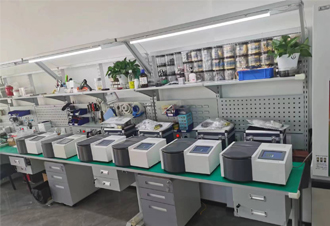 English
English


pv insulation resistance tester
Understanding PV Insulation Resistance Testers A Crucial Tool for Solar Energy Systems
As solar energy continues to gain prominence as a sustainable and renewable energy source, maintaining the efficiency and safety of photovoltaic (PV) systems becomes paramount. One of the key aspects of ensuring that PV systems operate effectively and safely is the use of insulation resistance testers, specifically designed to evaluate the insulation integrity of solar modules and associated wiring. This article explores the importance, working principle, and application of PV insulation resistance testers in the solar energy industry.
Importance of Insulation Resistance Testing
In a PV system, insulation resistance testing serves as a critical safety measure. The modules, wires, and inverters used in these systems must be insulated properly to prevent electrical shocks, fire hazards, and equipment failure. Over time, factors such as environmental conditions, exposure to moisture, UV radiation, and mechanical stress can deteriorate insulation materials. This degradation can lead to current leakage, which may not only compromise the efficiency of the solar system but also pose serious safety risks.
Regular insulation resistance testing helps identify potential insulation failures before they escalate into significant issues, ensuring that the solar energy system operates safely and efficiently. Moreover, this testing is often a prerequisite for warranty claims and insurance policies.
Working Principle of PV Insulation Resistance Testers
A PV insulation resistance tester operates by applying a high voltage (typically between 250V to 1000V) to the insulation material of the PV system. This high voltage creates a potential difference that can highlight any weaknesses in the insulation by measuring the resistance levels. The tester links to the module or wire and gauges the current that escapes through the insulation to the ground.
The device then calculates the insulation resistance using Ohm's law, where resistance equals voltage divided by current (R = V/I). The resulting value is displayed on the tester, usually measured in megohms (MΩ). A high insulation resistance reading indicates that the insulation is intact and capable of preventing current leakage, while a low reading suggests potential insulation issues that require further inspection and maintenance.
Application of PV Insulation Resistance Testers
PV insulation resistance testers are essential in various stages of solar energy systems, including installation, maintenance, and troubleshooting
. During the installation phase, these testers ensure that all components are functioning correctly and that the insulation is effective before the system is connected to the grid.pv insulation resistance tester

In the maintenance phase, regular testing can detect gradual insulation degradation over time. Solar installers and maintenance teams can incorporate insulation testing into their routine checks, allowing them to identify problems early on and implement preventive measures. This proactive approach not only enhances system longevity but also improves overall efficiency.
Types of PV Insulation Resistance Testers
There are various models of PV insulation resistance testers available, each designed to meet specific testing requirements. Some key features to consider when selecting a tester include
1. Voltage Range Ensure the tester can apply the appropriate voltage, typically between 250V and 1000V, suitable for different PV modules.
2. Measurement Range A wide measurement range allows for accurate assessment of insulation resistance in systems with varying insulation conditions.
3. Data Logging Advanced testers offer data logging capabilities, allowing users to record and track insulation resistance over time, facilitating trend analysis and reporting.
4. Portability Many testers are compact and lightweight, making them easy to transport to different testing sites, especially in expansive solar farms.
Conclusion
In conclusion, PV insulation resistance testers play a pivotal role in safeguarding the integrity and performance of solar energy systems. By regularly assessing insulation resistance, solar energy operators can enhance safety, prevent costly failures, and maximize efficiency. As the adoption of solar technology increases, the importance of reliable testing tools like insulation resistance testers will continue to grow, ensuring that the solar industry remains a dependable cornerstone of the global energy landscape.
-
Differences between open cup flash point tester and closed cup flash point testerNewsOct.31,2024
-
The Reliable Load Tap ChangerNewsOct.23,2024
-
The Essential Guide to Hipot TestersNewsOct.23,2024
-
The Digital Insulation TesterNewsOct.23,2024
-
The Best Earth Loop Impedance Tester for SaleNewsOct.23,2024
-
Tan Delta Tester--The Essential Tool for Electrical Insulation TestingNewsOct.23,2024





